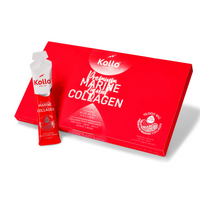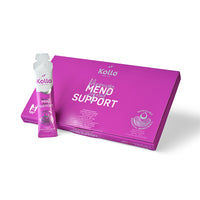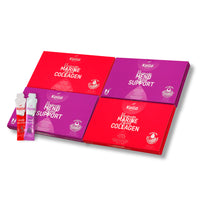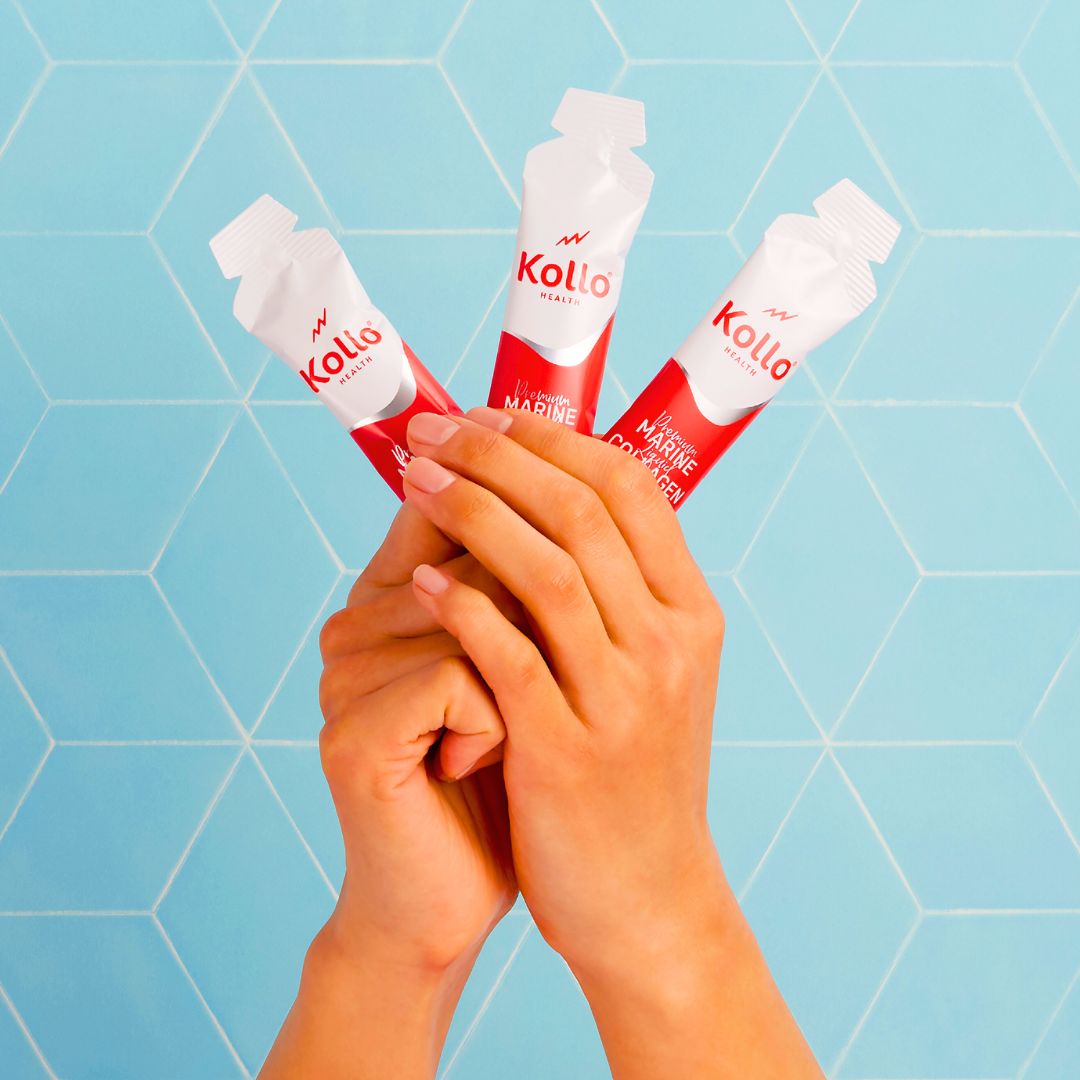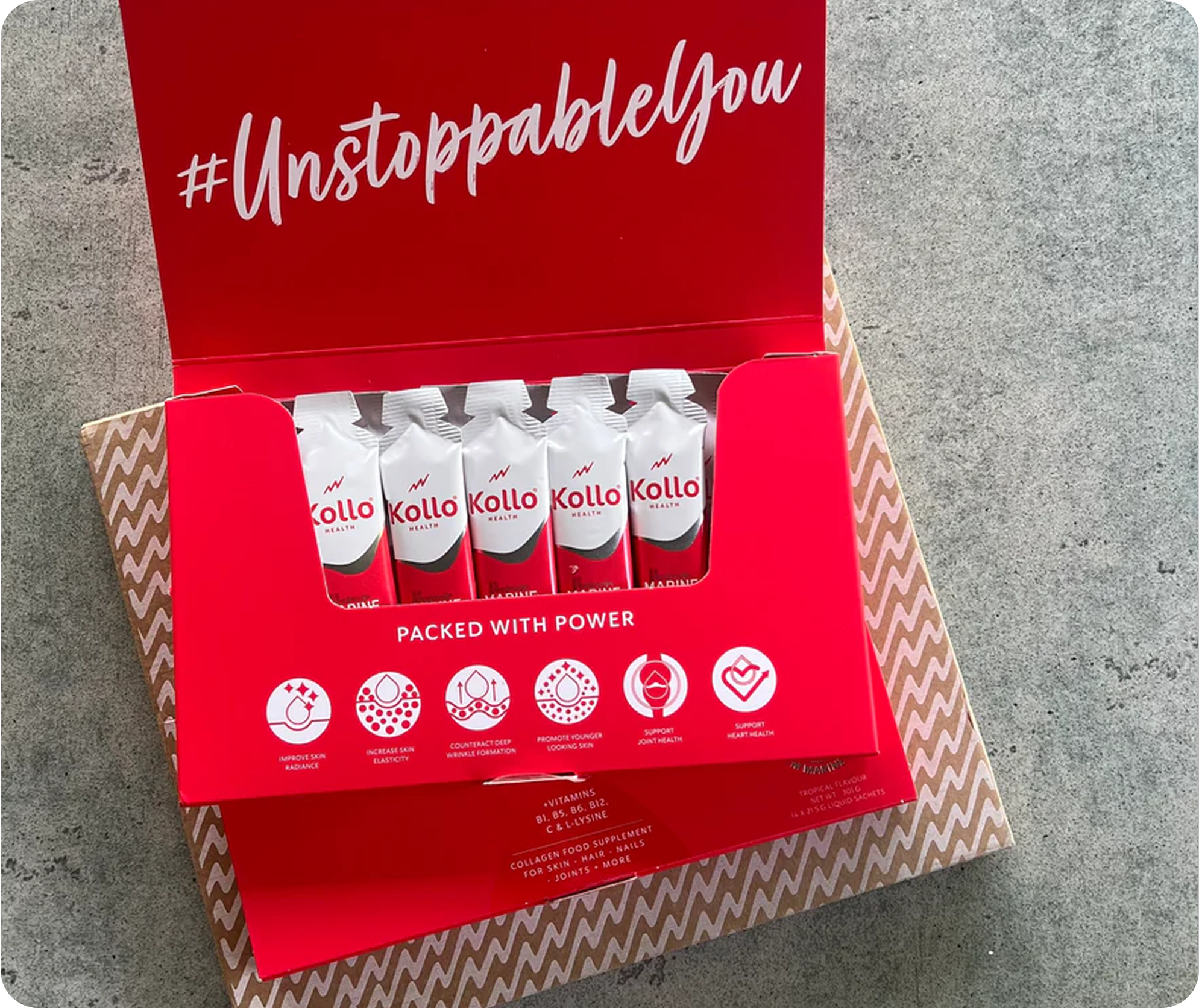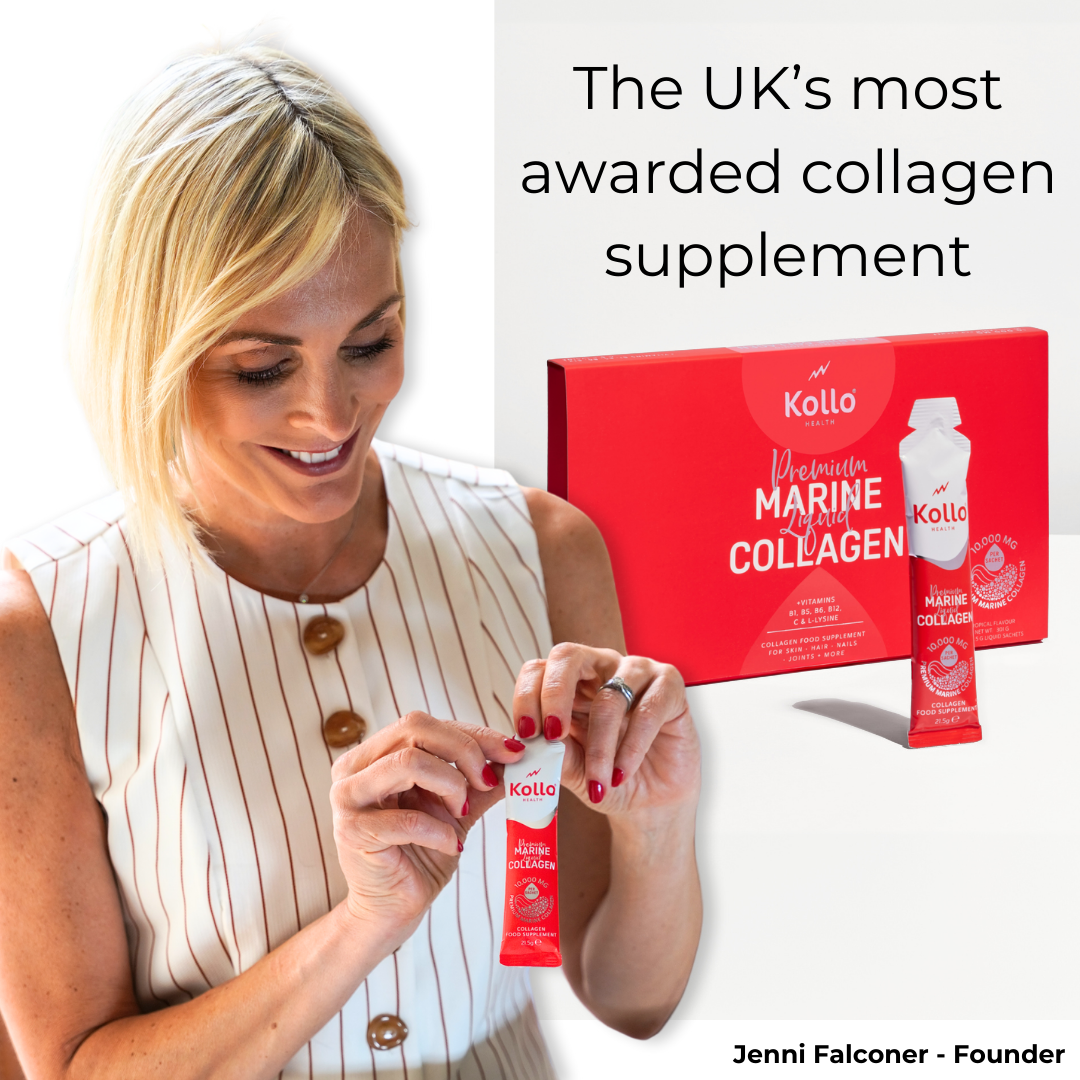Menopause and Collagen Supplements

Menopause and collagen supplements
Menopause can present challenges for many women, including the dreaded "hot flashes" - the most common symptom - and a loss of skin suppleness and bone strength. Now, a growing body of research suggests edible collagen supplements could combat the symptoms of menopause, improving the quality of life for women who take them.
In addition to hot flashes during the menopausal transition, you're also faced with the acceleration of collagen loss. This causes the skin to become less supple, leading to more wrinkles. It can also lead to the bones becoming more brittle.
As well as clinical trials, anecdotal evidence and consumer reviews support the theory that taking collagen orally can alleviate some of the symptoms commonly associated with menopause. Read on to find out the link between menopause and collagen supplements and what people say about how it has helped them.
How much collagen do women lose at menopause?
Our body produces collagen naturally, but in greater quantities when we are young. There are 28 different collagen types in the human body, with more than 90% being Type I. Collagen makes up 33% of the body's total protein mass and is crucial for maintaining our skin's elasticity and strength.
However, even by the time we're in our mid-20s, the body's natural production of collagen starts to slow down. This decrease in collagen continues throughout our life. Women in the first five years of menopause lose up to 30% of their collagen production capabilities.
It's believed this is because of a decrease in oestrogen production, due to there being oestrogen beta receptors in the skin’s dermal matrix that are instrumental in collagen formation. This dramatic reduction in collagen causes the skin to become less elastic. When combined with hormonal changes that cause dryness as well, the skin becomes increasingly prone to fine lines, wrinkles and sagging.
For this reason, many people take collagen supplements to help keep their skin, nails, hair, bones, joints and other parts of the body in tip-top shape, helping to retain youthful suppleness. A growing body of evidence now shows collagen consumption may combat symptoms often associated with menopause.
How do collagen supplements help with menopause?
Taking a collagen supplement to increase the amount of collagen in our body can help improve the appearance of fine lines and wrinkles, leaving the skin looking more youthful. Clinical trials have concluded the results become significantly more noticeable after eight weeks, although some improvements can be seen after four weeks.
Thinning hair can also occur post-menopause. For women, hair loss can impact self-confidence and self-esteem. Hair is made up mainly of keratin, so because collagen contains some of the amino acids needed to build keratin, it can improve our hair's condition. Clinical trials have concluded taking collagen supplements can result in fuller and thicker hair.
Another after-effect of menopause can be aching and stiff joints. As natural collagen production slows down, this can cause joint pain. Taking a collagen supplement over a period of time can help reduce joint pain and improve the symptoms of osteoarthritis.
Researchers have suggested collagen supplements can accumulate in cartilage, stimulating more natural collagen production by the body's tissues. Evidence suggests women in the early stages of menopause who take collagen supplements can have a less stressful experience.
Which is the best type of collagen for menopause?
People are increasingly turning to the latest type, marine collagen, made from collagen protein sourced from fish, after a number of scientific studies about its effectiveness were published. It has a high collagen content that is absorbed easily into the body.
It is also described as a more sustainable, eco-friendly product by customers, many of whom prefer it to bovine collagen. Some people can't take bovine collagen for religious reasons or ethical reasons, so prefer marine collagen.
Available in several different forms, including liquid, powder or tablets, marine collagen is tasteless and odourless. It is also popular because new research is being carried out all the time into how collagen may help delay the signs of ageing, something many women are concerned about post-menopause.
What do the experts say about menopause and collagen supplements?
A study in 2015 revealed a supplement containing collagen achieved significant improvements in the depth of wrinkles, skin elasticity and hydration of the skin in women aged between 45 and 64.
A separate study concluded collagen had a positive effect on bone density. Post-menopause, a loss of bone density is common, increasing the risk of osteoporosis in later life. Trials suggested collagen supplements may increase bone mineral density, protect cartilage and lead to less painful joints.
Studies also show a collagen supplement can create a significant improvement in postmenopausal women's hair volume, shine and thickness. This is hardly surprising since collagen makes up 70% of the dermis, the middle layer of our skin where the hair's roots are housed.
An eight-week controlled study of 114 women aged 45 to 65 years examined the effects of taking 2.5g of collagen hydrolysate per day on the condition of the skin. The results spoke in favour of collagen supplements. In particular, a visible difference in eye wrinkles was noted.
What do customers say about collagen for menopause?
Many customers who have tried collagen supplements from Kollo Health have said it's amazing for menopause and are thrilled with its effects on their well-being. The comments have been extremely positive.
A 45-year-old female, in the early stages of menopause, said she had been taking a daily shot of collagen for a couple of months. She described how she was incredibly impressed with the results, as it had improved the appearance of her skin, which had been adversely impacted.
Another customer said they had to "rave about Kollo" because taking collagen supplements had "changed everything". She described how her hair had grown back glossier and stronger, looking better than it had done in years. In addition, her nails had become stronger than they had ever been.
A third post-menopausal female who had been taking a collagen supplement for four months said she couldn't believe how much better she felt. She described how she was sleeping better, had thicker and glossier hair and improved skin texture and appearance.
At the age of 51, she said her skin was softer and firmer, making her "absolutely love" ingestible collagen. She intended to continue to take it every day for the rest of her life.
A fourth female customer in her 50's had been taking a collagen supplement mixed into a glass of fresh orange juice every morning. She was "absolutely amazed" by the results.
After three weeks, her hair felt "much thicker" - a revelation after four years of suffering thinning hair due to menopause - and she was "very excited" to be getting her hair back again.
Is collagen for menopause backed by science?
Collagen is the main protein that forms our body's connective tissues. It is crucial everywhere, from the skin's dermis to the cartilage in our joints and the muscles. The depletion of collagen during menopause is accelerated by the reduction in oestrogen levels.
Although we experience side effects from the production of collagen in our bodies, these can be mitigated to slow down the impact of collagen supplements. While multi-vitamins help improves the levels of vitamins and minerals in our body, collagen supplements can help our bodies to maintain healthy levels of this vital structural protein as menopause begins.
Kollo Health's top collagen supplement, backed by science, uses 10g of Type I marine collagen peptides per dose. The formula also includes vitamins B and C, improving the collagen's absorption rate and further enhancing the body's natural collagen formation.
The Kollo formula also contains L-Lysine to boost the immune system. The combination of specially selected ingredients is aimed at producing healthier skin, nails, hair, joints and bones when women going through menopause most need support.
The science behind the "anti-ageing" label suggests collagen keeps the body more supple and healthier in appearance during menopause, a time of great change. Some customers choose a monthly subscription plan, investing in the structure of their body and choosing a daily 10g dose of liquid collagen from Kollo Health.
What forms do marine collagen come in?
Kollo's tasty liquid collagen supplement can be ingested either as a shot or a drink. We're confident you won't find a better collagen supplement on the market.
Collagen supplements can be taken in drinks, tablets, powders and topical creams. Many people feel oral consumption is the best way to absorb collagen peptides into their body. After consuming collagen daily, they have reported improved skin health , including a reduction in sagging and wrinkles and better elasticity.
The other benefits have included more supple joints that feel more comfortable, an increase in muscle mass and an improvement in bone density.
While there are many wonderful things about being female, going through menopause isn't one of them! Remember that collagen is considered an ally for females at all stages of menopause when it comes to improving skin condition and overall health.
Sources:
https://leancaffeine.co.uk/blog/6-ways-collagen-helps-you-during-after-menopause
https://sobody.co/pages/menopause-collagen
https://www.aad.org/public/everyday-care/skin-care-secrets/anti-aging/skin-care-during-menopause
https://gethealthyu.com/supplements-women-should-take-after-50/
https://kollohealth.com/blogs/news/marine-collagen-drink
